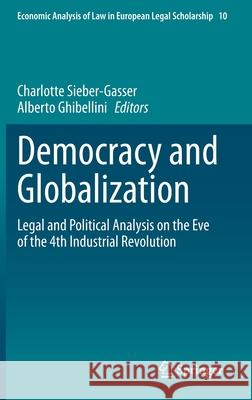Democracy and Globalization: Legal and Political Analysis on the Eve of the 4th Industrial Revolution » książka
topmenu
Democracy and Globalization: Legal and Political Analysis on the Eve of the 4th Industrial Revolution
ISBN-13: 9783030691530 / Angielski / Twarda / 2021 / 295 str.
Democracy and Globalization: Legal and Political Analysis on the Eve of the 4th Industrial Revolution
ISBN-13: 9783030691530 / Angielski / Twarda / 2021 / 295 str.
cena 644,07
(netto: 613,40 VAT: 5%)
Najniższa cena z 30 dni: 616,85
(netto: 613,40 VAT: 5%)
Najniższa cena z 30 dni: 616,85
Termin realizacji zamówienia:
ok. 22 dni roboczych
Dostawa w 2026 r.
ok. 22 dni roboczych
Dostawa w 2026 r.
Darmowa dostawa!
Kategorie:
Kategorie BISAC:
Wydawca:
Springer
Seria wydawnicza:
Język:
Angielski
ISBN-13:
9783030691530
Rok wydania:
2021
Wydanie:
2021
Numer serii:
000471408
Ilość stron:
295
Waga:
0.60 kg
Wymiary:
23.39 x 15.6 x 1.75
Oprawa:
Twarda
Wolumenów:
01
Dodatkowe informacje:
Wydanie ilustrowane











